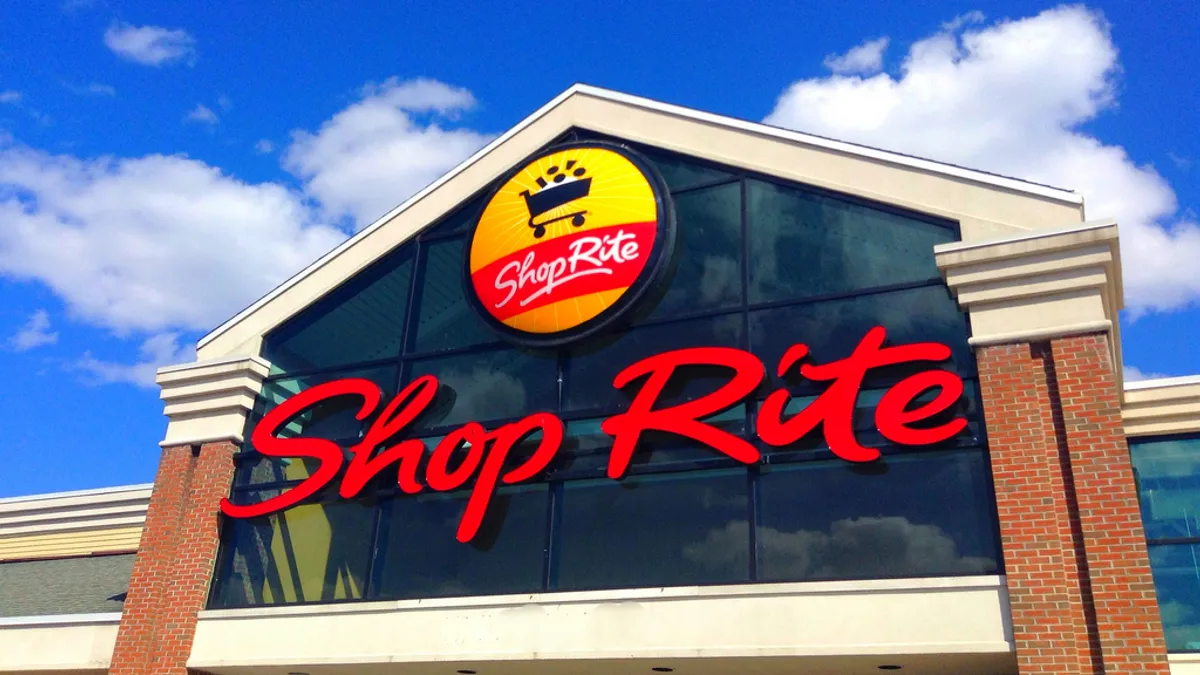Dive Brief:
- New Jersey-based grocery chain ShopRite has introduced a line of ethnic-inspired private brand meal kits under the brand The Chef’s Menu, according to Store Brands.
- The company’s meal kit offerings include Thai Coconut Chicken, Chicken Marsala, Korean Beef Stir Fry, Moroccan Chicken and Pork Scaloppini. They are available for around $13.99 — less expensive than a subscription service, according to Geoffrey Wexler, VP of food services for ShopRite. The company is also promoting the meal kits’ health profiles: Each kit meets USDA-recommended dietary guidelines, and has been approved by ShopRite’s dietitians.
- ShopRite is the latest retailer to dive into the meal kit space, joining the likes of Kroger, Publix, Albertsons, Weight Watchers and Meijer, as well as online subscription-based companies like Blue Apron and HelloFresh. According to Nielsen, in-store meal kit sales grew 26.5% last year to $155 million. Technomic, meanwhile, predicts the meal kit category will reach $10 billion in revenue by 2020.
Dive Insight:
The meal kit space is showing no signs of slowing down, and brick-and-mortar retailers are gaining considerable momentum as shoppers seek out convenient, lower-price options. ShopRite is the latest retailer to join the rush, alongside major players such as Walmart, Kroger, Meijer and Weight Watchers, all of whom have introduced their own meal kits just within the past few months.
ShopRite’s focus on ethnic meals will provide the retailer with a significant differentiator, and a popular one at that. According to IBISWorld, demand for ethnic food is strong, driven by millennials and a growing immigrant population. One potential disadvantage to this focus is it could limit occasions for consumers who want more variety.
However, consumers will likely respond well to these meal kits meeting USDA’s recommended dietary guidelines and the approval of ShopRite’s dietitians. These two features validate the meal kits’ healthy halos. According to a Nielsen report, 36 percent of consumers who have purchased meal kits say the availability of diet-specific foods is “extremely important” in their buying decisions.
The dizzying pace of these introductions has added pressure to category leader Blue Apron, which has struggled to overcome high spending and operational woes since going public in 2017. Compared to the early success of retailers’ meal kit introductions – including Walmart, which quickly sold out of several varieties – it's clear consumers like the convenience of these offerings, as well as their price points.
Blue Apron has since taken note that subscriptions alone are not effective, and plans to sell its meal kits in stores by the end of this year, according to the Wall Street Journal. This will add another major meal kit option in the retail space and could push the category even closer to critical mass. Consumers faced with more choices will ultimately decide who the survivors are, and those decisions will likely be based on which meal kits find the perfect balance between price and variety.








